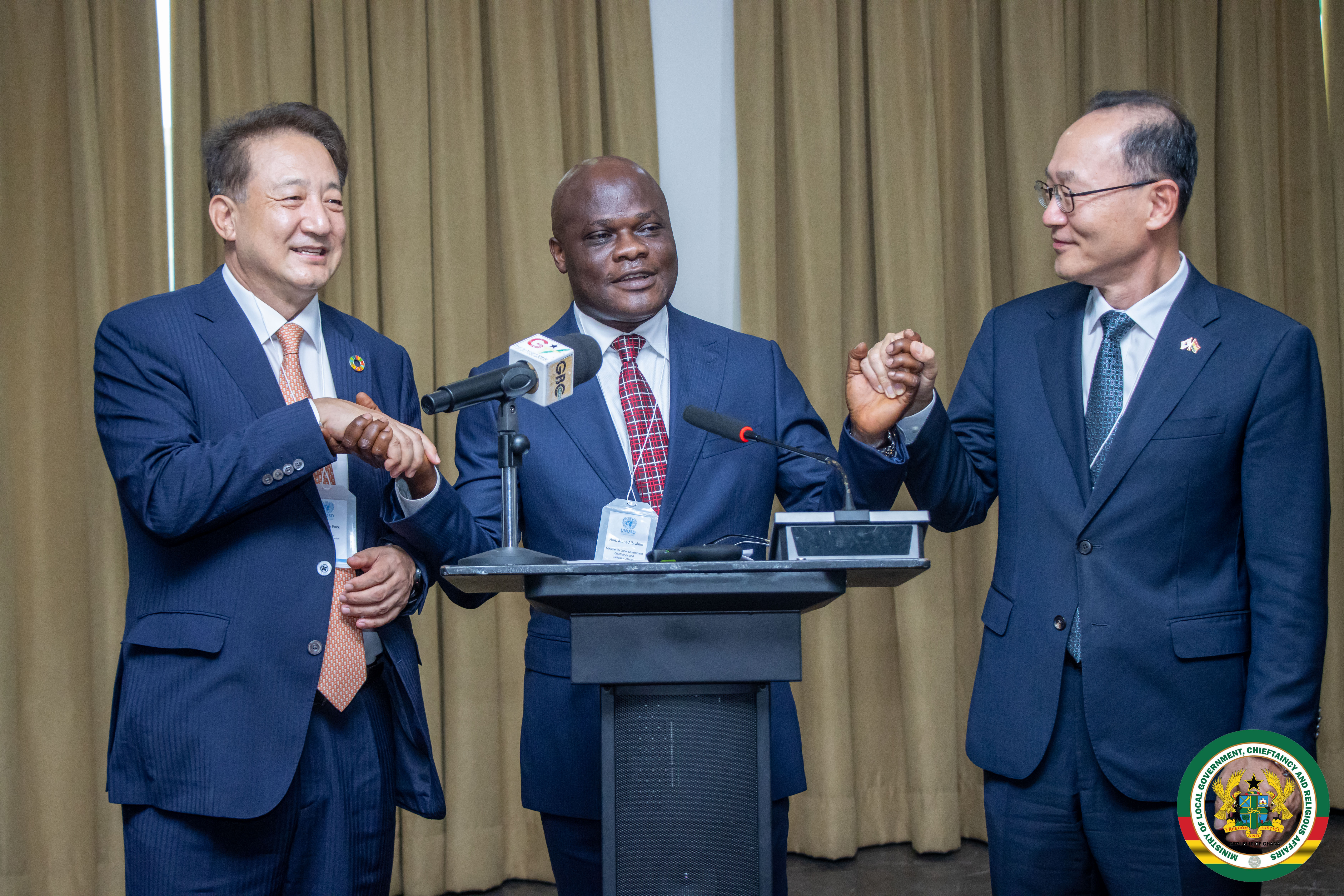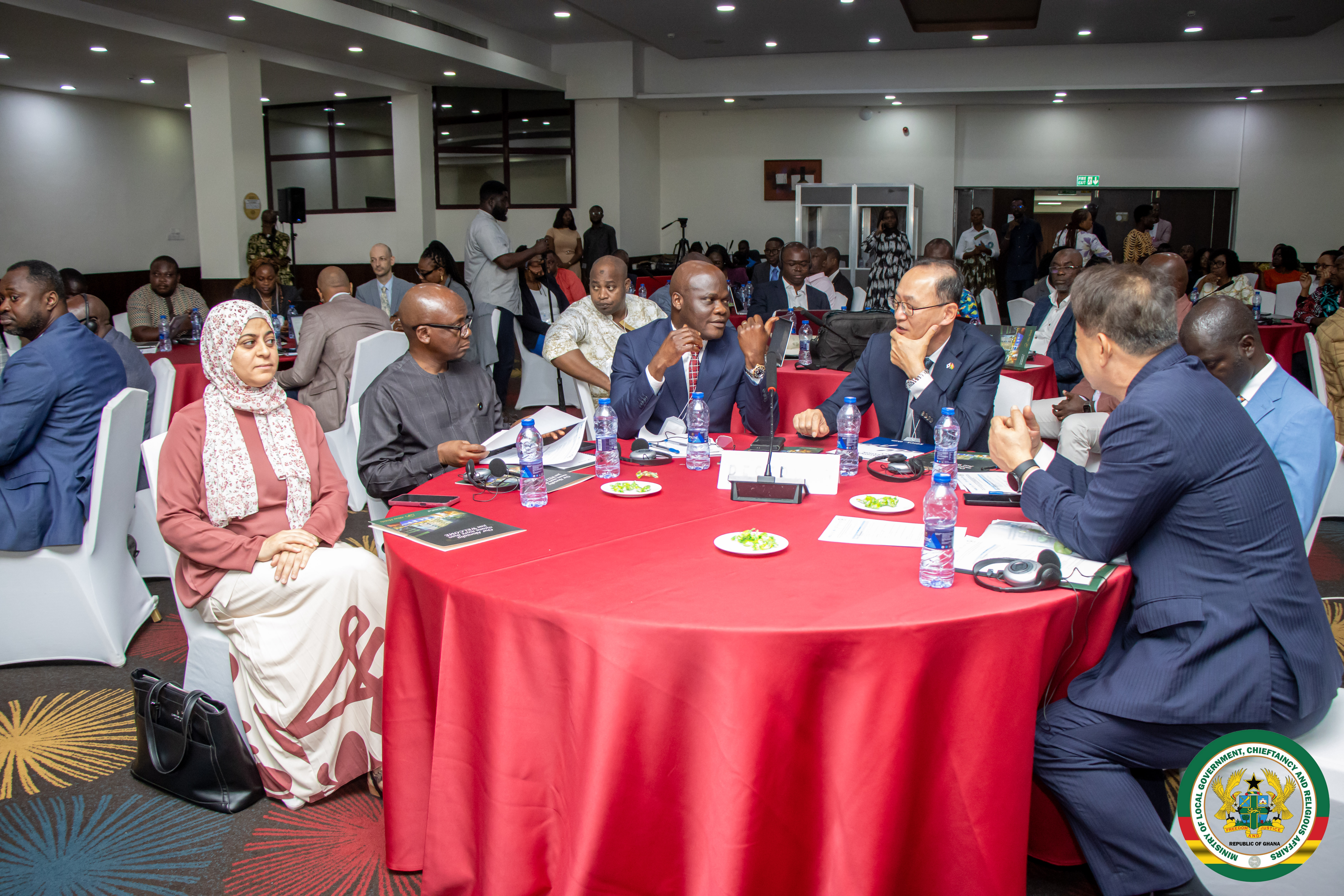Ghana has reaffirmed its leadership role in advancing sustainable development in West Africa as it hosts the three-day West Africa Regional Workshop on Waste Management and Circular Economy at the Alisa Hotel, Accra.
The high-level forum, convened by the United Nations Office for Sustainable Development (UNOSD) in partnership with the Ministry of Local Government, Chieftaincy and Religious Affairs, has brought together ministers, policymakers, development partners, private sector actors, and civil society representatives from across the sub-region. The workshop aims to bridge data gaps, enhance technical capacity, and drive evidence-based policymaking in the waste management and circular economy sector.
Welcoming participants, Hon. Ahmed Ibrahim, Minister for Local Government, Chieftaincy and Religious Affairs of Ghana, underscored the urgency of rethinking waste as a resource rather than a burden. He noted that rapid urbanisation, population growth, and shifting consumption patterns are stretching waste systems across West Africa.
“The challenge before us is not only how to dispose of waste safely, but how to transform waste into resources, opportunities, and drivers for sustainable development. For us in Ghana and across the sub-region, the goal is to build a waste sector that is not a burden, but a catalyst for sustainable development,” the Minister stressed.
He further highlighted Ghana’s designation as the West Africa Regional Hub for policy support on waste management and resource circularity, calling for frank, forward-looking deliberations that would yield practical recommendations for the sub-region.
Dr. Emmanuel K. Urey Yarkpawolo, Executive Director of the Environmental Protection Agency (EPA) of Liberia, shared Liberia’s bold reforms under its 2024 National Solid Waste Management Policy. He cited innovative projects such as Green Guard Eco-Solution’s waste-to-energy systems and the Transformative Climate Action Pilot Project supported by Canada, which are creating jobs, producing clean energy, and generating reliable waste data. He emphasised the need for financing to scale such initiatives across the region.
Representing the UN, Mr. Chun Kyoo Park, Head of UNOSD, described waste management as one of the most pressing barriers to achieving the Sustainable Development Goals (SDGs). He stressed the importance of reliable data and inclusive approaches, introducing the Waste Management and Circular Economy Policy Support System (WMPSS), which Ghana is championing as a regional model.
The Ambassador of the Republic of Korea to Ghana, H.E. Mr. Kyongsig Park, reaffirmed Korea’s commitment to sharing knowledge and supporting West Africa’s transition to a circular economy. He acknowledged Ghana’s strides, including the National Plastics Management Policy and regional recycling initiatives, describing them as exemplary for the sub-region.
The workshop comes at a pivotal time, with only five years remaining to achieve the 2030 Agenda for Sustainable Development. Stakeholders will over the next three days deliberate on financing, policy, regulation, technology, and community engagement, with the aim of building waste systems that are resilient, inclusive, and sustainable.
Source: Darling Maame Efua Cann
Public Relations Unit, MLGCRA



